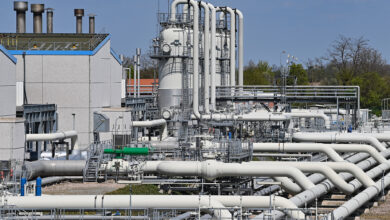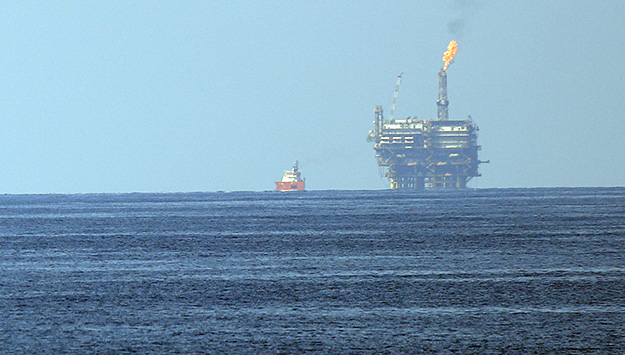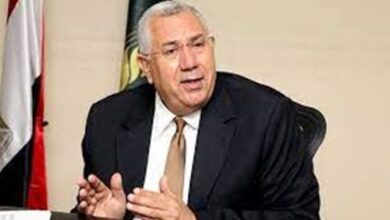Al-Masry Al-Youm met with Farouk al-Baz, research professor and director of the Center for Remote Sensing at Boston University, as part of our Green Profile series, in which prominent figures discuss pressing environmental issues. The following is part one of a two-part interview with the scientist.
Al-Masry Al-Youm: Our first question relates to a position you held in 1978 when you were appointed as Science Advisor to President Anwar al-Sadat. During that time you were charged with the selection of regions for land reclamation projects in the desert, with the aim of preventing any detrimental effects on the environment. Could you elaborate a little on the kind of projects you were involved in at the time?
Dr. Farouk al-Baz: President al-Sadat was a man of vision. He wanted to expand the living area of Egyptians because he knew that we cannot continue to live only by the Nile Delta because the population was growing and so were food requirements. Egyptians cannot continue to live just in that space, which is close to six percent of the land, and leave the rest of the country unpopulated. So he wanted to visualize what could be done in the desert.
I was invited by him in 1974 to study the deserts of Egypt. I used to be involved in the Apollo-Soyuz mission, which was charged with taking pictures of the Earth from space, with an emphasis on desert regions, especially of Egypt. We studied the Western desert, I sampled every single sand dune during that time, while studying all the land, its potential and so on. And it was in 1978 when President al-Sadat appointed me as Science Advisor and, having studied the desert, I was asked to tell him what we should do, where, and what we should expect from that.
We then started selecting locations for agriculture, other locations for groundwater extraction, other locations for habitation and so on. And in real life all of that fit into my proposal for a Development Corridor located west of the Nile from the Mediterranean, all the way to the border with Sudan. A space for Egyptians to build towns and villages, to do agriculture, to trade, to develop industries so that they would have more living space, because now we are living on top of each other–and that is not conducive to a civilized life, when you are unable to produce the food that you need, and all your equipment is imported and nothing is produced locally because of a lack of factories.
All of this limits the potential of the Egyptian people. You need breathing space and a living space. And that must take place outside of the Nile Delta, because if we continue to live only on the Nile Delta, with the current rate of land loss to urban growth only, the Nile Delta and all of the silt built up over millions of years would completely disappear 183 years from now. Nothing will be left to plant on, which is a disaster, and is very scary. We are importing now over 40 percent of our wheat, and agricultural production should be more, not less.
Al-Masry: Can you tell us more how the environmental dimension was emphasized within the land reclamation projects that you proposed?
Al-Baz: It is easier to control the environment, produce the right things and not harm the environment if you are in a totally new area. If you are burdened by a scheme that already exists, the roads, drainage system, all of these things limit you in terms of what you can do. But if you are starting anew with a plan for a brand new area, the area is open and you can do whatever you need, and you can institute environmental laws and regulations making certain that you only disturb the environment very little on the new land. So this is much more more conducive.
Al-Masry: There are concerns about our current water shortage problems and what water resources would be required by land reclamation projects. How would that balance be affected in a country like Egypt?
Al-Baz: In relation to water resources, and in particular groundwater resources, I would say we know only about 20-30 percent of our groundwater resources in the deserts of Egypt. So we are quite ignorant of where these resources are, how deep and so on. There is a general scheme of things. Russian scientists came and said there is something called the Nubian aquifer, which is several hundred meters thick and goes from Chad all the way to the Mediterranean sea. But that is a generalization that is good for nothing. It's an idea but it is not science at all.
The water exists in basins; most of these basins are separated from each other. There is an underlying topography that separates these from each other. Some are high, some are low. There are places where you have water in several layers. So, groundwater requires a great deal more study and evaluation in Egypt so that we would know exactly what the environment of groundwater is, how much exists, how much is able to be replenished, how much is not, how much we can use, and where, and for what.
Al-Masry: Is this the topic you will be discussing at the upcoming Arab Forum for Environment and Development taking place next month in Beirut?
Al-Baz: Yes […] I want to emphasize that the Arab region is a vast region yet we only have fragmented information. Eighty to ninety percent of the Arab land is not quite known as far as groundwater is concerned and the general scheme of where the water is. We cannot simplify things, each area needs to be studied in specific to figure out how deep and how saline the water is, its location and how much we can pump from it. Most of that water will be fossil water, meaning it accumulated during wet climates in the past, so accordingly you need to figure out how much it is and how much you can pump from it. All of this requires a great deal of research and that’s the point I would like to make.
Al-Masry: And you believe this research will be the key in ameliorating the water crisis faced by the region?
Al-Baz: Naturally this type of research is essential to ameliorate the problem and to at least allow governments to make proper plans.
Al-Masry: Going back to the project which you mentioned, which was first proposed over 20 years ago–the Nile Development Corridor, which has been re-proposed in recent times. What stage is that in?
Al-Baz: I hope for the Nile Development Corridor proposal to be considered by the private sector for implementation, because this this kind of project needs private sector involvement to ensure there is no corruption while ensuring that the government does its job […] The private sector implementing such a project would ensure its success by profiting from such a project and making certain we open up jobs for Egyptian youth and professionals, which would work wonders for the development of the country.
The people who looked at this proposal for the very first time told me that on the day you begin to develop this infrastructure, not the whole project, just the infrastructure that’s necessary, you will employ 450,000 thousand people.
As far as the study is concerned, the government has looked into it. I personally presented it to the Prime Minister alongside six other ministers. At the time they agreed it was something certainly needed for Egypt’s future. After a cost-benefit analysis was conducted by the Ministry of Economic Development, while adding other things to the project, still the cost of the project was put at US$24 billion over ten years. And US$24 billion is nothing for the future of a nation.



